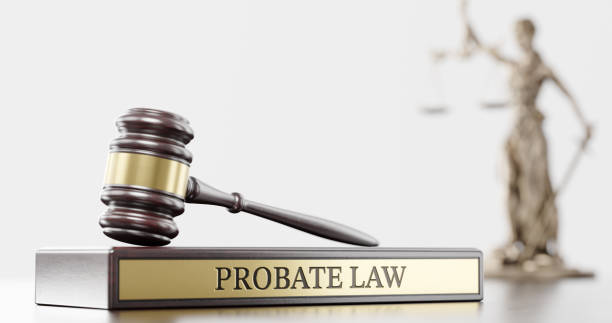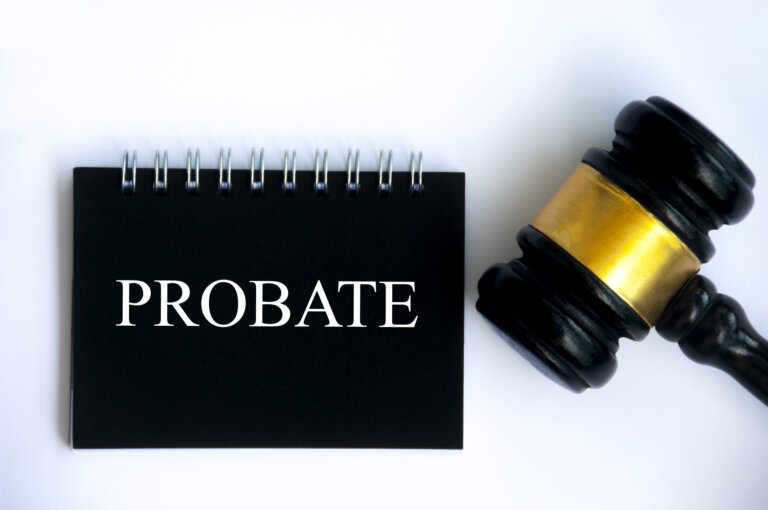When a loved one passes away, handling their estate can be an emotional and legally complex process. Many families immediately ask, “Which court has jurisdiction over probate Texas?” Understanding the correct probate court is crucial since Texas probate law varies based on the type of will, estate size, and potential disputes.
This guide explains Texas probate court jurisdiction, the probate process, and what to do when a will is contested. Whether you’re an executor, heir, or beneficiary, knowing your legal options will help you manage the estate efficiently.

Understanding Texas Probate Court Jurisdiction
In Texas, probate cases are handled at the county level, but not all counties follow the same system. Determining which court has jurisdiction over probate Texas depends on the deceased’s residence and whether the county has designated probate courts. Selecting the right court prevents unnecessary legal delays.
Statutory Probate Courts
Large counties in Texas operate statutory probate courts that exclusively handle probate, guardianship, and mental health cases. If the deceased resided in one of these counties, the statutory probate court holds exclusive jurisdiction over the estate. This means all estate-related matters, including executor disputes and will contests, go through these courts.
County Courts at Law
In mid-sized counties, county courts at law oversee probate cases, along with other civil and criminal matters. If a statutory probate court does not exist in the county, these courts manage the probate proceedings. They usually handle standard probate cases but may take on contested issues if higher courts don’t intervene.
Constitutional County Courts
Small Texas counties rely on constitutional county courts for probate matters, along with civil and criminal cases. The judges may lack formal legal training, making contested probate cases more complicated. If disputes arise, cases often move to district courts for resolution.
District Courts
Complex probate cases, such as contested wills or fraud allegations, often shift to district courts. These courts handle high-value estates, inheritance disputes, and cases with multiple creditors. Their broader legal authority makes them better suited for probate cases requiring detailed legal interpretation.
How to File for Probate in Texas
Once you determine which court has jurisdiction over probate Texas, the next step is filing for probate. The executor or an interested party must submit the will and necessary documents to the appropriate probate court.
Step 1: Filing the Probate Application
The executor or heir must file a petition in the correct probate court within four years of the person’s death.
- The application should include the will (if available), the death certificate, and a request for the court to appoint the executor.
- Failing to file within the deadline may result in state intestacy laws determining asset distribution.
Step 2: Court Verification and Executor Appointment
The judge reviews the submitted documents to confirm the will’s validity.
- If no one contests the will, the court issues letters testamentary, granting the executor legal authority to manage the estate.
- A contested will may delay this step, leading to further legal proceedings.
Step 3: Notifying Creditors and Beneficiaries
The executor must notify all heirs, beneficiaries, and creditors about the probate process.
- Creditors receive a limited time to file claims for outstanding debts.
- The court requires transparency in these proceedings to protect heirs and creditors.
Step 4: Inventory and Asset Distribution
The executor creates a detailed inventory of estate assets, including real estate, bank accounts, and personal property.
- After settling debts and taxes, remaining assets are distributed according to the will or state intestate succession laws.
- Failure to account for all assets can lead to disputes or legal penalties.

What Happens If a Will is Contested?
Contesting a will complicates the probate process, adding legal challenges and potential delays. If heirs believe the will is invalid, they may file a legal challenge in the appropriate probate court. Disputes often arise when unexpected changes affect inheritance, or a beneficiary feels unfairly excluded from the estate. The court carefully examines all evidence before making a ruling.
Common Reasons for Contesting a Will
Lack of Testamentary Capacity
A will requires the testator to be mentally competent at the time of signing. If evidence suggests the testator suffered from dementia, Alzheimer’s, or cognitive decline, the court may challenge the document’s validity. Judges often review medical records, caregiver testimony, and expert evaluations to determine whether the testator understood the implications of the will. If the testator lacked mental capacity, the court may void the will and enforce a previous version or apply intestate succession laws.
Undue Influence
If someone pressured or manipulated the testator into altering the will, the document may be challenged in court. Signs of undue influence include sudden changes to beneficiaries, unexpected property transfers, or situations where the testator was isolated from other family members. Courts investigate financial records, medical history, and witness statements to determine if coercion played a role. A will created under undue influence can be invalidated, leading to an earlier will or state intestacy laws governing inheritance.
Improper Execution
Texas requires wills to be signed by the testator in the presence of two witnesses, and it must comply with all legal formalities. If these steps were not followed, the court may declare the will invalid. In some cases, handwritten wills (holographic wills) may also be challenged if they lack proper signatures or legal phrasing. Courts examine whether the will meets all statutory requirements to determine its validity. Executors must ensure that the document complies with Texas probate laws to avoid unnecessary legal battles.
Fraud or Forgery
Suspicions of falsified documents, forged signatures, or missing pages can lead to serious legal disputes. If an heir believes someone tampered with the will, they may request a formal forensic examination to verify authenticity. Courts rely on handwriting analysts, forensic experts, and witnesses to confirm whether the document was altered or fraudulently created. If fraud is proven, the will is typically invalidated, and an earlier version may be enforced. Fraud cases can also lead to criminal charges against the responsible party.
How Courts Handle Contested Wills in Texas
Step 1: Filing the Challenge
The contestant must file a formal petition in probate court, clearly stating why the will should be contested. This filing initiates the legal process and must be done within the statutory time limit set by Texas law. The contestant bears the burden of proof, meaning they must present clear and convincing evidence to support their claim. A strong case includes medical records, witness testimonies, and financial documents that help establish the validity or invalidity of the will. Without sufficient proof, the court may dismiss the case early, preventing further disputes.
Step 2: Gathering Evidence
Both parties present relevant documents, including medical history, financial records, and expert testimony. If undue influence is suspected, courts will examine bank statements, sudden financial transfers, and caregiver involvement. Expert witnesses, such as medical professionals or forensic specialists, may testify regarding the testator’s mental condition at the time of signing. These testimonies provide critical insight into whether the testator acted independently or under pressure. Courts will also review any video recordings or previous legal documents to determine the testator’s intent.
Step 3: Court Ruling or Mediation
Once all evidence is presented, the court may issue a ruling or order mediation to help heirs resolve disputes. Mediation can be beneficial, as it allows family members to negotiate privately without the stress of a prolonged trial. If the will is ruled invalid, an earlier version may be enforced, or the estate may be distributed according to Texas intestacy laws. In cases where fraud or coercion is proven, the court may also impose penalties on the party responsible. A well-handled mediation process can save time, reduce costs, and preserve family relationships.
Alternatives to Traditional Probate in Texas
1. Small Estate Affidavit
If an estate’s value is $75,000 or less (excluding homestead property), heirs can file a Small Estate Affidavit to bypass full probate. This shorter process enables assets to be transferred to heirs without court supervision. To qualify, all heirs must agree on the distribution, and there should be no major disputes regarding inheritance. This method saves time, reduces legal expenses, and provides a faster resolution for small estates.
2. Independent Administration
If the will explicitly permits Independent Administration, Texas law allows executors to minimize court involvement while managing the estate. This method enables the executor to pay debts, distribute assets, and settle affairs with less court oversight. Independent Administration reduces legal fees, speeds up probate, and ensures that heirs receive their inheritances faster. However, it requires heirs to cooperate and avoid legal disputes that could force the case into supervised probate.
3. Muniment of Title
If real estate is the only probate-required asset, heirs may use Muniment of Title to avoid a lengthy probate case. This process allows the court to validate the will and directly transfer property to beneficiaries. The estate must have no outstanding debts, ensuring that creditors do not interfere with the transfer. This method simplifies the probate process, making it one of the quickest ways to settle an estate in Texas.

Final Thoughts: Navigating Texas Probate Courts
Understanding which court has jurisdiction over probate Texas ensures a smooth estate settlement. Filing correctly avoids delays, whether you’re an executor, heir, or contesting a will.
- County probate courts handle standard cases, while district courts manage disputes and complex estates.
- Contesting a will requires legal strategy, strong evidence, and knowledge of probate law.
If you’re facing probate issues, seeking legal advice from an experienced Texas probate attorney can simplify the process. The right legal approach ensures fair estate distribution and prevents unnecessary conflicts.








